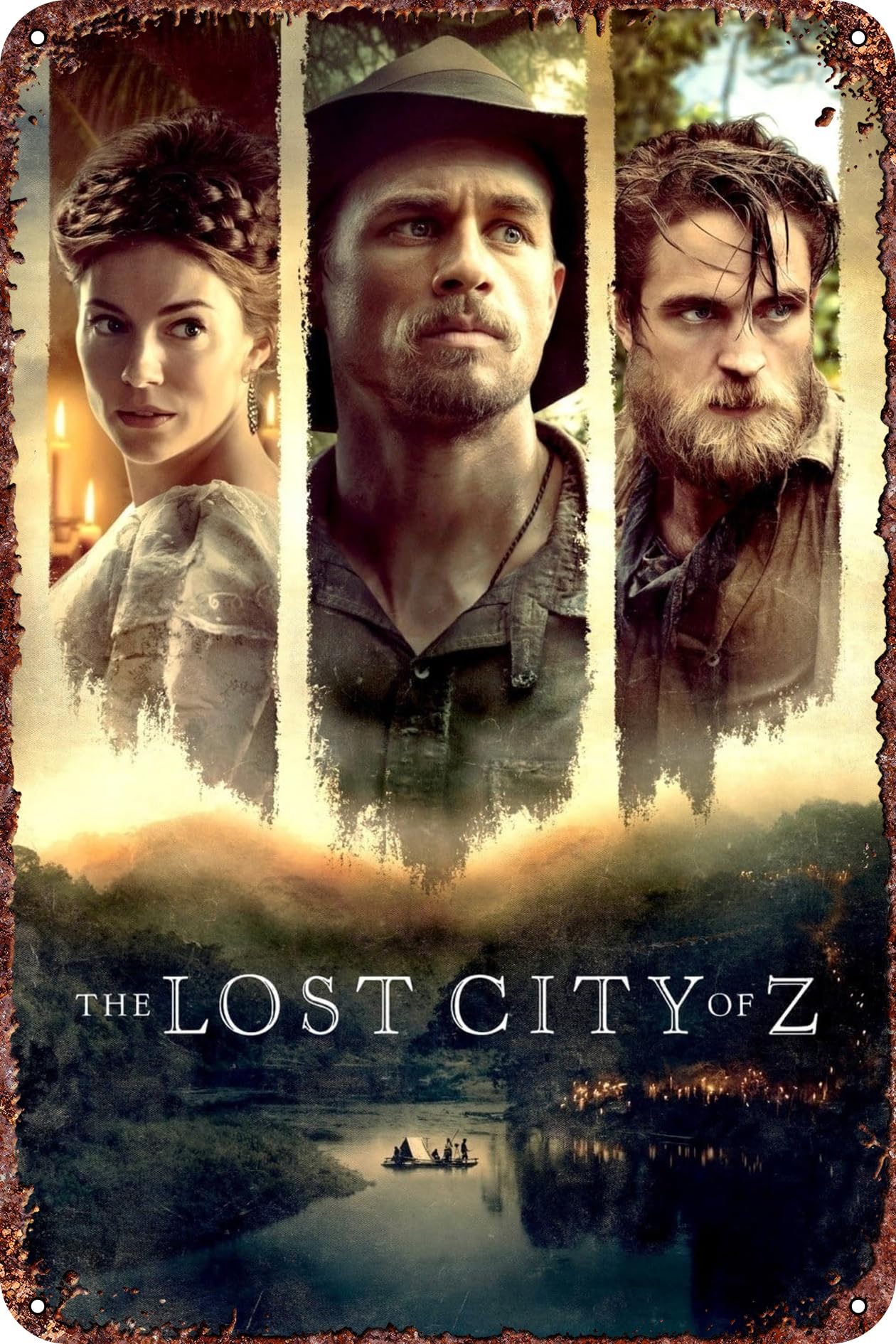
The Lost City of Z
James Gray’s The Lost City of Z is the kind of movie that Hollywood doesn’t really make anymore—a slow-burn, introspective adventure film that’s more about obsession and existential yearning than it is about gunfights and treasure maps. If you’re expecting a swashbuckling, vine-swinging, snake-punching Indiana Jones type of adventure, I have some unfortunate news: this is not that. There are no ancient booby traps, no secret passageways, and not a single fedora in sight. What we do get is a beautifully shot, hypnotically slow descent into madness, where one man gets so consumed by the unknown that he willingly throws his entire life into the jungle, never to return.
Charlie Hunnam, shedding all remnants of his Sons of Anarchy biker aesthetic, plays Percy Fawcett, a British explorer who makes the baffling mistake of thinking, Yes, I will absolutely go deep into the Amazon rainforest in the early 1900s when absolutely everything is trying to kill me. To be fair, Percy isn’t some glory-seeking adventurer—he’s a man desperate to prove himself to a world that looks down on him. He stumbles upon the idea of a lost civilization buried in the jungle and suddenly, his life is no longer about being a husband or father—it’s about finding Zed (because the British refuse to say Zee like normal people). The deeper he goes, the more obsessed he becomes, to the point where the jungle stops being a place and becomes a state of mind.
Gray directs the film with the kind of patience that dares you to let it sink into your bones. He’s not interested in cheap thrills or exaggerated spectacle. Instead, he lets the atmosphere take over, letting the sweat, the mud, and the endless sea of trees weigh down on you like they do on Fawcett. It’s hypnotic, almost dreamlike—especially when compared to the rigid, oppressive society Fawcett returns to back home in England. Every time he steps out of the jungle, the world seems grayer, smaller, and more suffocating, as if civilization itself is the real prison.
And let’s talk about Robert Pattinson, because somehow, amid all of this, he sneaks in one of his best I’m-going-to-make-you-forget-I-was-ever-in-Twilight performances. As Fawcett’s scruffy, loyal companion Henry Costin, Pattinson disappears into the role, reminding us once again that he thrives in weird, offbeat characters with impressive facial hair. His quiet, almost resigned presence serves as a perfect counterbalance to Hunnam’s increasingly manic ambition, a reminder that for every explorer chasing glory, there’s a guy just trying not to die from malaria.
Sienna Miller also delivers a strong performance as Fawcett’s wife, Nina, a woman stuck in the impossible position of loving a man who loves something else more. She challenges him, supports him, and resents him all at once, embodying the emotional toll that Fawcett’s obsession leaves on the people around him. Because while he’s off chasing mythical cities, his real-life responsibilities—his family, his children, his entire actual existence—are left behind, gathering dust.
By the time the movie reaches its haunting final moments, it doesn’t really matter whether Fawcett found Z or not. The point isn’t about what’s real—it’s about the chase, the longing, the need to believe in something greater than yourself. The Lost City of Z isn’t about discovery; it’s about obsession. It’s about the people who are willing to walk off the edge of the map, knowing full well they might never come back.
So if you’re looking for a classic adventure movie with action-packed set pieces, this might not be your thing. But if you want a slow, meditative, and quietly devastating story about a man who willingly loses himself in the unknown—then The Lost City of Z is a journey worth taking. Just, you know, bring some bug spray.